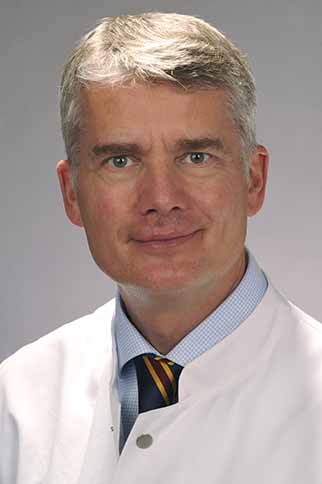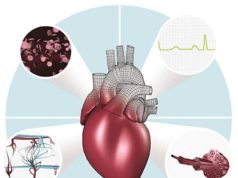
Hermann Reichenspurner (Departments of Cardiovascular Surgery and General and Interventional Cardiology, University Heart Center, Hamburg, Germany) at EuroPCR (22 May—25 May, Paris, France) reported that the Centera self-expanding transcatheter aortic valve implantation (TAVI) device is associated with both a low rate of cardiovascular mortality (4.6%) and a low rate of disabling stroke (4.1%) at one year for the management of aortic stenosis in patients at high surgical risk.
According to Reichenspurner, the valve has a short frame height, the same bovine pericardial tissue that is used in Edwards Lifesciences’ Sapien valve family, Resilia tissue technology “that allows the valve to be stored dry”, and a “unique contoured frame designed to anchor and seal within the annulus for low paravalvular leak rates”.
The primary endpoint of the CENTERA study was to evaluate the rate of 30-day all-cause mortality in patients who received the valve. The 30-day results were presented at last year’s EuroPCR and showed a high survival rate (99%) and a low rate of disabling stroke (2.5%). The aim of the present analysis was to review the one-year follow-up outcomes for patients who received the valve.
Of the 203 patients initially enrolled in the study, follow-up data were available for 179 patients. The all-cause mortality rate was 9%, the rate of disabling stroke was 4.1%, and the rate of cardiac-related hospitalisation was 6.8%. Additionally, the rate of cardiac mortality was 4.6% and the rate of need for a new permanent pacemaker 6%. No patients had severe or moderate aortic regurgitation at one year, with most (71.4%) having none or trace (28.6% had mild aortic regurgitation).
Between baseline and 30-day follow-up, in the overall study population, there was a significant improvement in New York Heart Association (NYHA) Class (p<0.0001). However, there were no differences in NYHA class between 30 days and six months or between 30 days and one year. At one year, the majority of patients were in Class I or II.
Reichenspurner told Cardiovascular News that Centera offers “excellent early and one-year outcome with low mortality, minimal evidence of paravalvular leakage and low rates of necessary pacemaker implantation”.













